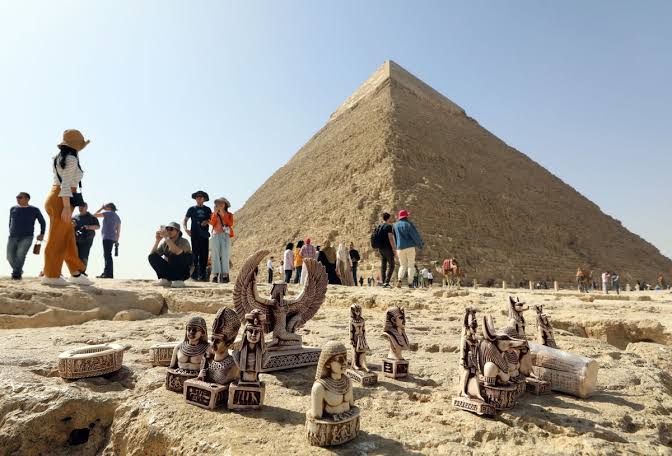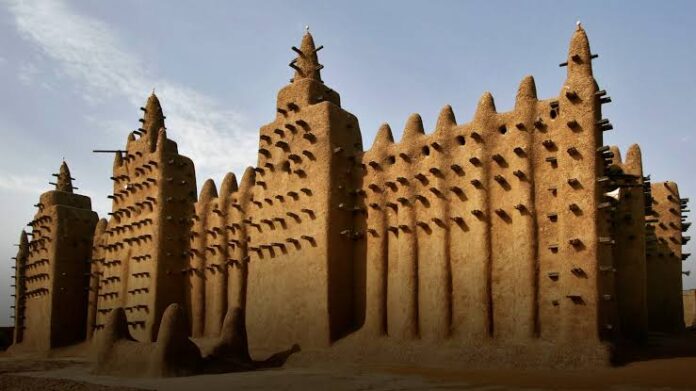Africa’s spiritual landscapes are adorned with sacred sites and shrines, each holding a unique significance and allure. For those seeking a profound spiritual journey or a glimpse into the continent’s rich cultural heritage, embarking on pilgrimages to these sacred places can be a transformative experience. In this article, we’ll explore the diversity of sacred sites across Africa, delving into their cultural and spiritual importance while providing insights on how to plan your pilgrimage. From the ancient pyramids of Egypt to the mystical forests of Nigeria, get ready to embark on a spiritual odyssey like no other.

**1. The Great Pyramids of Giza, Egypt**
A pilgrimage to the Great Pyramids is a journey back in time to one of the world’s most iconic and enigmatic ancient sites. These colossal structures have captured the imagination for centuries, with their precise construction and alignment with the stars. Visitors can explore the pyramids, the Sphinx, and nearby temples while immersing themselves in the mysteries of ancient Egypt.
**2. Lalibela, Ethiopia**
Lalibela, often referred to as “The New Jerusalem,” is renowned for its rock-hewn churches carved directly into the earth. These astonishing structures, dating back to the 12th century, are a testament to Ethiopian Orthodox Christianity. Pilgrims can attend religious ceremonies and explore the intricate underground passages connecting the churches.
**3. Mount Sinai, Egypt**
Mount Sinai, also known as Jebel Musa, is a sacred peak in the Sinai Peninsula. It is revered in Christianity, Islam, and Judaism as the place where Moses received the Ten Commandments. Pilgrims often ascend the mountain at dawn, a challenging yet spiritually rewarding experience, to witness the sunrise from its summit.
**4. Lake Malawi, Malawi**
Lake Malawi is home to Likoma Island, where St. Peter’s Cathedral stands as a prominent pilgrimage destination. The cathedral, built in the early 20th century, boasts stunning architecture and serene surroundings. Pilgrims can partake in religious services, enjoy the tranquil lake, and connect with local communities.
**5. Osun-Osogbo Sacred Grove, Nigeria**
The Osun-Osogbo Sacred Grove is a UNESCO World Heritage Site and a place of reverence for followers of Yoruba religion. This lush forest is adorned with sculptures, shrines, and natural water springs, and it hosts the annual Osun-Osogbo Festival. Pilgrims can explore the spiritual significance of this sacred grove while enjoying its breathtaking beauty.

**6. Djenne, Mali**
Djenne is home to the Great Mosque of Djenne, the largest mud-brick structure in the world. This mosque, a UNESCO World Heritage Site, is an architectural marvel and a sacred place for the local Muslim community. Pilgrims can witness traditional mud-brick construction techniques and participate in communal prayers.

**7. Kaya Kinondo Sacred Forest, Kenya**
The Kaya Kinondo Sacred Forest is a sacred site of the Mijikenda people and is considered one of the last remaining sacred coastal forests in East Africa. Pilgrims can explore the forest’s rich biodiversity, learn about the rituals and traditions of the Mijikenda, and connect with the spiritual energy of this unique place.
**8. Timbuktu, Mali**
Timbuktu, known as the “City of 333 Saints,” is steeped in Islamic history and scholarship. The city is home to numerous mosques, libraries, and mausoleums of revered saints. Pilgrims can explore these historic sites and delve into the city’s vibrant cultural heritage.
**9. The Maasai Mara, Kenya**
For the Maasai people, the Maasai Mara is a sacred land that holds deep cultural and spiritual significance. Pilgrims can immerse themselves in Maasai traditions, witness the Great Migration of wildebeests, and appreciate the profound connection between the Maasai and their ancestral lands.
**10. Benin City, Nigeria**
Benin City is known for its rich history and the famous Benin Bronzes. It is also a hub of ancestral worship and veneration. Pilgrims can visit ancestral shrines, participate in traditional ceremonies, and gain insights into the spiritual beliefs of the Edo people.

Embarking on a pilgrimage to Africa’s sacred sites and shrines is a profound and enriching experience that allows travelers to connect with the continent’s deep spirituality and cultural heritage. Whether you seek ancient mysteries in Egypt, explore rock-hewn churches in Ethiopia, or immerse yourself in the traditions of local communities in Nigeria and beyond, these journeys offer a glimpse into the diverse spiritual tapestry of Africa. As you plan your pilgrimage, remember to respect the sacredness of these places, engage with local customs, and open your heart to the transformative power of these spiritual landscapes. In the end, your pilgrimage will not only be a physical journey but also a soulful exploration of Africa’s enduring spiritual legacy.

